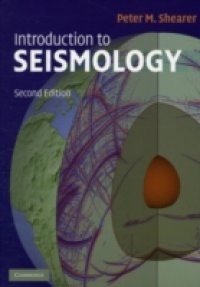This book provides an approachable and concise introduction to seismic theory, designed as a first course for undergraduate students. It clearly explains the fundamental concepts, emphasizing intuitive understanding over lengthy derivations. Incorporating over 30% new material, this second edition includes all the topics needed for a one-semester course in seismology. Additional material has been added throughout including numerical methods, 3-D ray tracing, earthquake location, attenuation, normal modes, and receiver functions. The chapter on earthquakes and source theory has been extensively revised and enlarged, and now includes details on non-double-couple sources, earthquake scaling, radiated energy, and finite slip inversions. Each chapter includes worked problems and detailed exercises that give students the opportunity to apply the techniques they have learned to compute results of interest and to illustrate the Earth's seismic properties. Computer subroutines and datasets for use in the exercises are available at www.cambridge.org/shearer.

